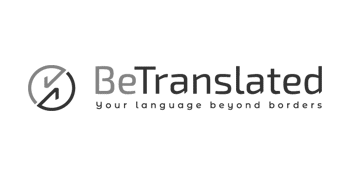Website Localisation Services
Website Localisation Services for Global User Engagement
Reach Global Audiences with Tailored Website Localisation
Website localisation ensures your site adapts effectively to each target market, aligning language, cultural references, and user expectations. This approach helps businesses attract and convert international audiences with content that feels local and relevant.
Our services cover every aspect of localisation: from multilingual SEO and localised e-commerce platforms to culturally aware UX and interface design. These strategies increase visibility in search engines and drive meaningful engagement in foreign markets.
- Multilingual SEO: A localised SEO strategy can boost organic traffic by up to 70%. Nearly 73% of users prefer buying from websites available in their native language, making language-specific keyword optimisation and regional SERP targeting essential.
- Localised E-commerce: Businesses that adapt product content, currency formats, and payment systems for each region report 20% higher conversion rates. Customising checkout processes and logistics improves trust and accelerates sales growth across borders.
- User Experience Design: A culturally adapted interface reduces bounce rates and increases user satisfaction. Whether it’s right-to-left support for Arabic users or specific visual cues for Asian markets, localisation creates a smoother, more intuitive journey for every visitor.
With 90% of users showing a strong preference for content in their own language, localisation is a proven way to expand your global reach. Combined with strategic services like cultural consulting and website internationalisation, it unlocks new revenue opportunities and strengthens global brand presence.

Our Customers

Why Website Localisation Matters
From professional translations to website localisation, CMS integration, and e-commerce localisation, we ensure your content resonates with diverse audiences, driving engagement, brand loyalty, and growth in every market.
Let us help you communicate effectively across borders, increase your global reach, and unlock new revenue streams.
What is website localisation?
Website localisation is the process of adapting your website’s content, design, and functionality to suit the language, culture, and preferences of a specific target market. This goes beyond simple translation, involving cultural adaptation, local imagery, and region-specific features to ensure relevance and engagement. In 2025, over 75% of global consumers prefer to purchase from websites in their native language, making localisation essential for international growth.
Why is website localisation important for businesses?
Localisation enables businesses to reach new markets, increase customer trust, and improve conversion rates by providing a tailored user experience. Studies show that 30% of buyers never purchase from English-only websites, highlighting the need for local language options.3 Localised websites also gain a competitive advantage and are more likely to comply with local regulations and consumer expectations.3
What are the key steps in the website localisation process?
The localisation process includes researching your target audience, selecting the right languages, hiring professional translators, and adapting content for cultural relevance. Technical steps involve implementing hreflang tags, optimising website speed, and testing for both linguistic and functional accuracy. Ongoing updates and local SEO strategies are crucial for maintaining visibility and effectiveness in each market.
How does website localisation affect SEO?
Website localisation improves your search engine rankings in target regions by using local keywords, implementing hreflang tags, and optimising content for local search intent. Localised sites attract more organic traffic and appear more relevant to both users and search engines. This results in higher visibility, increased engagement, and reduced reliance on paid advertising.
What challenges should businesses consider when localising a website?
Key challenges include ensuring accurate cultural adaptation, managing technical complexities, and maintaining consistency across multiple language versions. Businesses must also comply with local laws and regulations, adapt payment and shipping options, and regularly test for quality assurance. Investing in expert translators and local market research helps overcome these hurdles and ensures successful localisation.
Website Localisation Pricing
Here is a more marketing-oriented version:
Maximise your global reach with our website localisation services. Rates depend on project size, language count, and content complexity – from €0.08–€0.30 per word, €25–€150 per page, or €25–€150 per hour.
For a 50-page multilingual site with multimedia, expect costs between €2,000 and €10,000. Pricing varies for rare languages and technical content.
Plan ahead for quality assurance, project management, or CMS integration to streamline your localisation journey and unlock volume discounts. Let's get your message across. Contact us today.
Our Website Localisation Expertise
From adapting content for different languages to integrating with CMS platforms, we ensure your brand resonates with diverse audiences, boosts search rankings, and drives conversions. With 72% of consumers more likely to buy from a website in their native language, our solutions are designed to improve user experience and drive revenue growth.
Ready to go global? Break language barriers and reach new customers worldwide. Contact us today.




